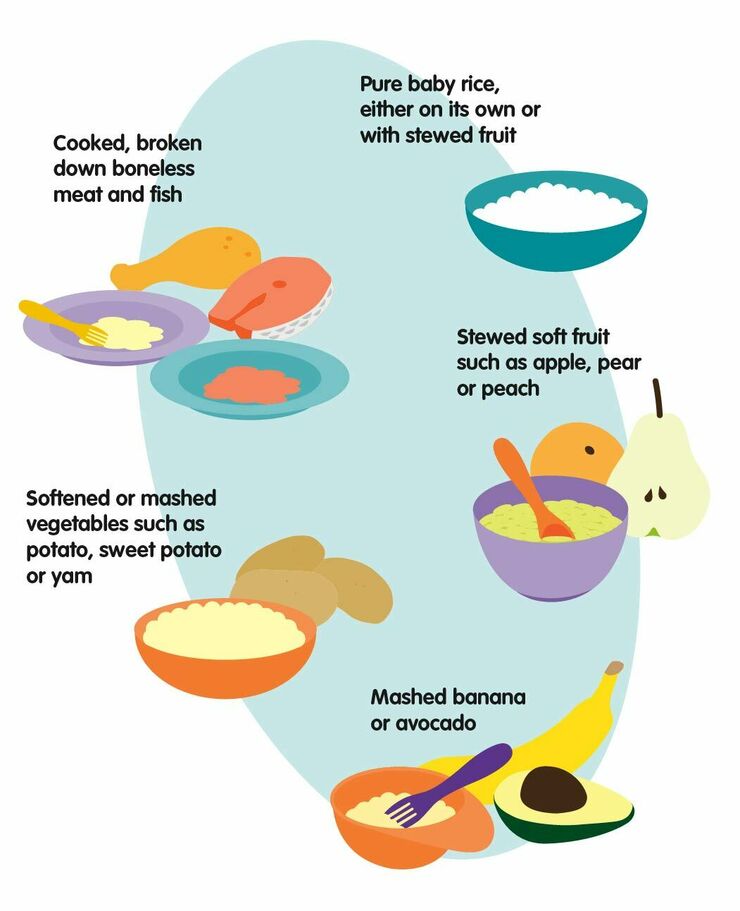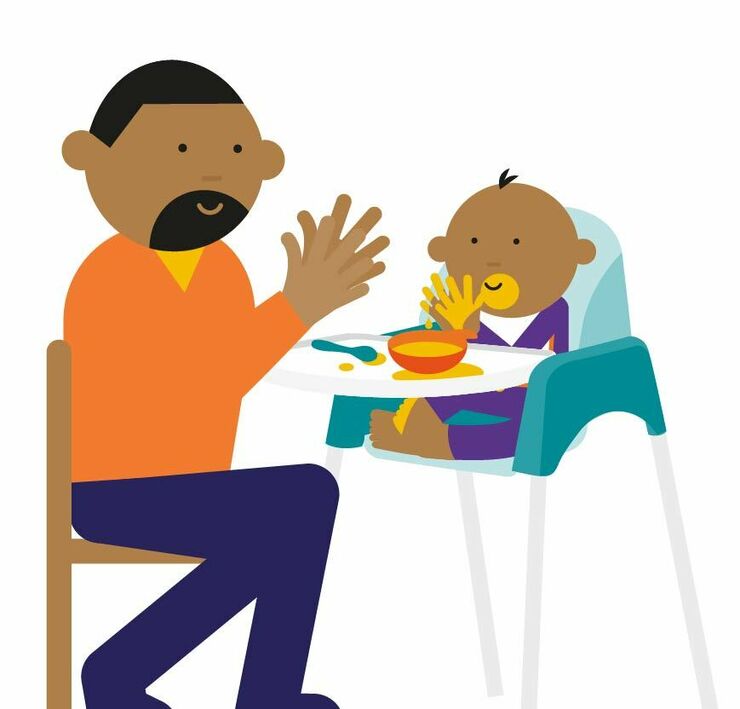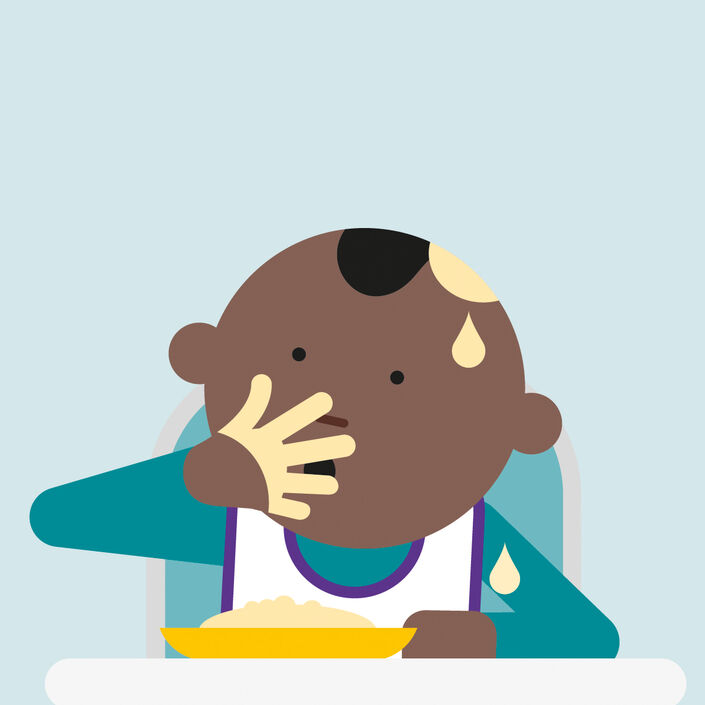As your baby begins to increase the amount of solid food they eat, it is important to give them a wide variety of nutritious food.
This is because, after a few months, they will begin to reduce the amount of milk they drink.
Click on the links below for some useful meal ideas and recipes for your baby:
- What To Feed Your Baby | 7 to 9 mths | Weaning | Start for Life *
- Recipes and meal ideas | Start for Life
- Eating well: the first year
*Although this refers to 7-9 months, your baby could try these foods earlier if weaning started around 6 months corrected age.
Gradually, your baby will move towards having three meals a day: breakfast, lunch, and dinner.
Up to around twelve months corrected age, babies don’t need snacks between meals. If you think your baby is hungry in between meals, offer extra milk feeds instead.
Here are some things you can include at main meals so your baby has a variety of food types:
- A protein food, such as meat or fish or lentils/beans or egg - these foods also contain iron, which is very important to avoid iron deficiency and anaemia.
- A starchy vegetable, such as potato, yam, or rice.
- A vegetable, such as carrot or broccoli.




